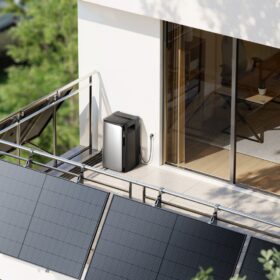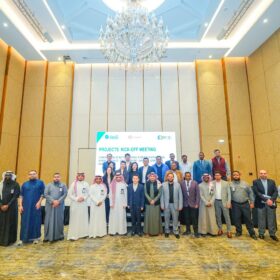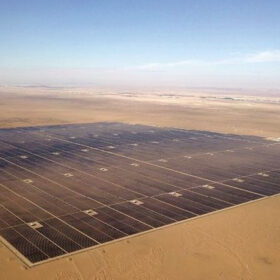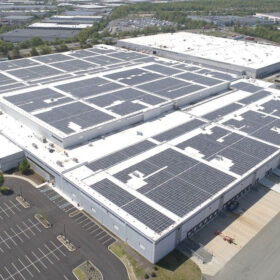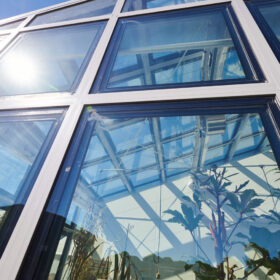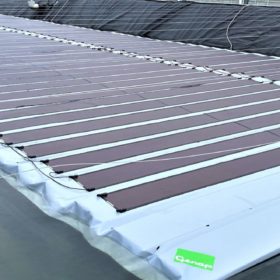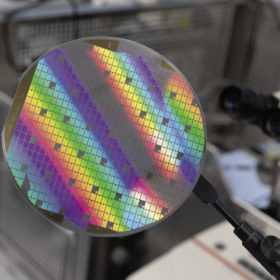EcoFlow launches balcony PV system, batteries with AI features
EcoFlow’s new Stream series, its second-gen balcony solar plant, enables battery coordination and plug-and-play solar for distributed batteries, plus third-party microinverter coordination for its new battery.
Israel awards 1.5 GW energy storage in tender, pricing from $49.41 to $74.20 per kWh
Israel’s storage tender sets prices between $0.0056 and $0.0085 per kW, with kWh figures therefore at $49.41 to $74.20 per kWh.
BYD to supply 12.5 GWh of battery storage in Saudi Arabia
Following a report in January, BYD has now officially secured the 12.5 GWh battery energy storage system (BESS) supply deal.
Saudi Arabia announces prequalified bidders for 2 GW/8 GWh battery storage tender
The Saudi Power Procurement Company has announced its list of 33 prequalified biders for its massive 2 GW/8 GWh BESS tender.
Data center power loads threaten corporate net-zero goals
The International Energy Agency (IEA) projects that by 2026, data centers will consume more than 800 TWh annually, more than double their consumption in 2022.
ClearVue releases results from first long-term study of clear solar glass
Perth-based ClearVue is making significant strides as its transparent solar windows demonstrate tangible outcomes following a two-year study and published paper.
The long read: Tapping the solar data trail
US-based energy tech company Enphase Energy appears to have overcome the adversity it faced in the mid-2010s, when it was grappling with competition from string inverters and slower growth in the residential segment. Now that rooftop solar is hot again, Enphase’s co-founder and chief product officer, Raghu Belur, sat down with Tristan Rayner to discuss the microinverter pioneer’s approach to quality in a time of rapid change and the growing utility of connected devices.
Lightweight solar for agricultural water reservoirs
The Genap Energy Cover uses HyET Solar Powerfoil thin-film solar modules, rated at 12.0% efficiency, for agricultural water storage and reservoirs, with an initial focus on the greenhouse and horticulture markets in the Netherlands. Genap said a 12kWp test setup had a generation density of 60W/m2, rising to 120W/m2 within a year, with an eventual target of 165W/m2.
The long read: Silicon carbide’s second coming
Silicon carbide (SiC) has promised inverter makers higher power density, higher efficiency, and a total bill of materials that comes in closer to its more established rival in silicon. Has SiC finally arrived? Tristan Rayner spoke to the people at the forefront of the wider-bandgap material to find out the back story and what’s next.
The long read: Bringing solar module costs down to earth
Rising efficiencies and the plummeting cost of solar modules over the past few years, recent months notwithstanding, are leading innovators toward ideas that may look unusual in the current tracker-dominated world of large-scale solar parks. Advocates of the new approaches argue that they leave traditional models looking decidedly flat by comparison.

